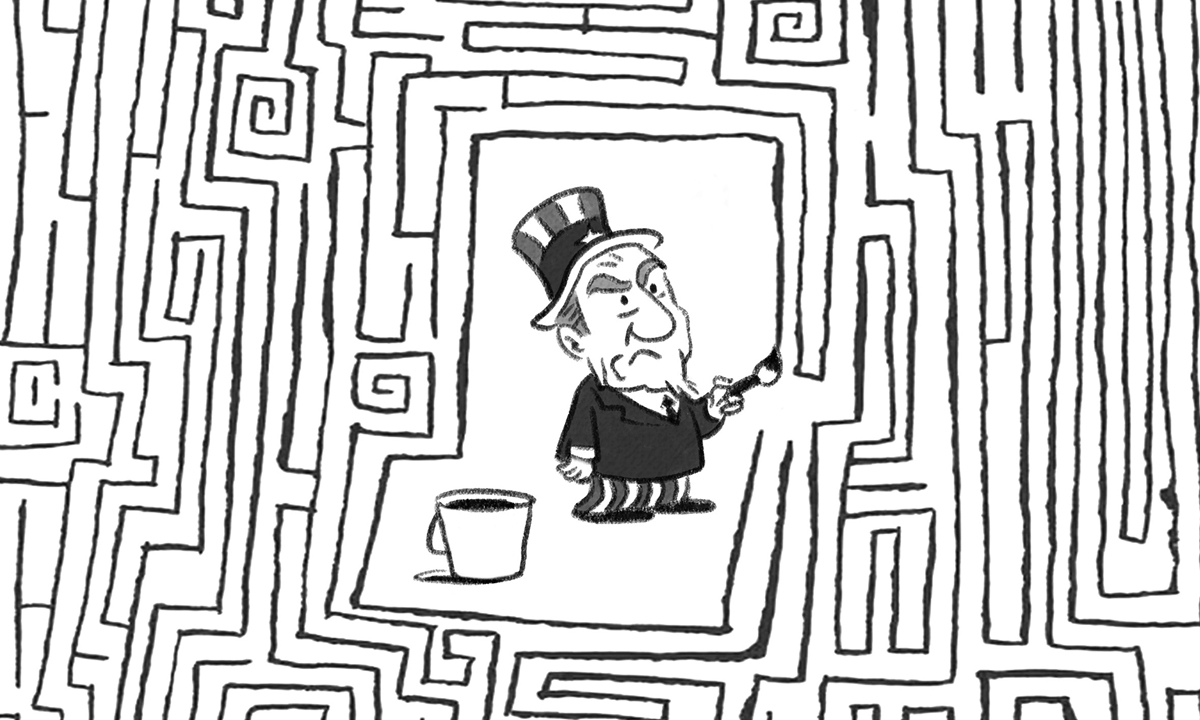
Illustration: Liu Rui/GT
In another anti-China move, a number of US Republican lawmakers introduced comprehensive legislation aimed at confronting their fixated strategic competitor on multiple fronts -from the so-called intellectual property theft to China's "aggression" in the South China Sea.
The bill, called Strengthening Trade, Regional Alliances, Technology, and Economic and Geopolitical Initiatives Concerning China (Strategic) Act, was proposed on Wednesday by the Chairman of the US Senate Foreign Relations Committee Jim Risch, together with others. Senator Mitt Romney, who co-authored the bill, addressed China's "growing aggression" and "predatory efforts," and Risch hoped the legislation "provides a blueprint to advance bipartisan cooperation in all aspects of the competition with China in 2020 and beyond."
At a time when China-US relations have entered their most intense dynamics, the US' China policy is still dictated by those who blindly adopt an anti-China stance and who lack adequate knowledge of China. Such a lack of understanding is reflected by their views of China through an exceedingly ideological and geopolitical lens.
They misjudged China's development as the country's strategic ambition to surpass the US and dominate the world, and mistakenly believe China adopts a winner-take-all approach like what the US has always been engaging in. As a result, their China policy is partial, flippant and petty, and lacks a strategic vision.
The origin of the current frayed China-US relationship is the US fear toward China's fast development and US anxiety over its own decline. Amid such fear and anxiety, the US imagines China as a vicious enemy, and this mentality went out of control as the COVID-19 epidemic raged across the US.
"Competition" dominates the drafting of the latest US bill. Although competitors can still be partners and do not necessarily become adversaries, the US discourse has gone even further to make China and the US enemies.
Now, rationality in the minds of those US Republican senators has been marginalized. Competition-driven, sensational and extreme China policies have gone rampant among the US policymaking circle. This not only has something to do with the backdrop of China-US tense relations, but also is a result of the upcoming presidential election. Hyping the "China threat" could just be what the Republicans and Democrats have in common, and where the Republicans can save their slumping votes.
US political elites are now indulged in their tough stance toward China without having any real knowledge and judgment of what China's development means to the US. They are dealing with China-US relations with a simple, hysterical and rough way, but have no ability to craft China policy in a comprehensive and mature manner. What's worse, there is no relevant retrospection within the US about its dysfunctional system regarding China relations.
In an article for the Washington Post, prominent China hand Ezra F. Vogel wrote that US officials need some "fundamental rethinking" of their China policies for "common interests." If US policymakers always adopt a competitive rather than cooperative mind-set toward China, China-US relations will only end up slipping to the edge of a cliff, which serves the interests of neither.


